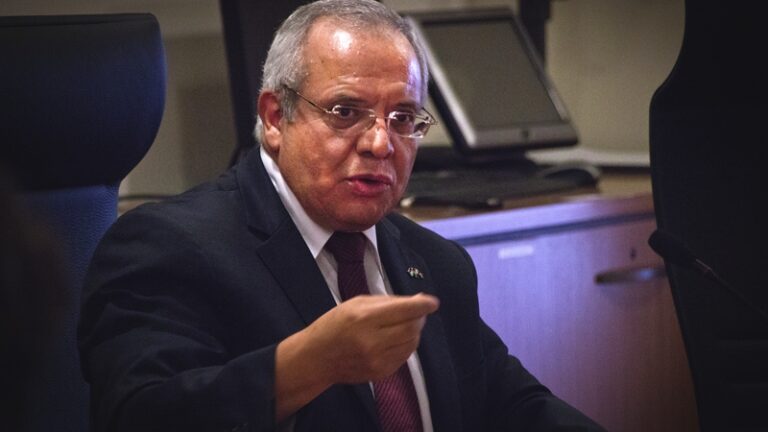Dialogue Series, Distingushed Lectures, Regional Studies
Ambassador Munir Ghannam Lectures on the Israeli-Palestinian Conflict

H.E. Munir Ghannam, Ambassador of Palestine in Qatar, delivered a Focused Discussion lecture on February 13, 2013, on the topic of the Israeli-Palestinian conflict. The Ambassador introduced the lecture by noting that “the Palestinian-Israeli conflict, which is part of the Arab-Israeli conflict,” has a long and turbulent history that has been ongoing for over a century. Giving some historical background to the conflict, the Ambassador recounted that “the whole story started at the beginning of twentieth century when Palestine was put under the British mandate in 1922, which then started a process of allowing hundreds of thousands of Jewish immigrants to immigrate from several countries all over the world, but mainly from Europe,” because of the atrocities that the Jews had been subjected to in general, and during the world wars in particular.
Over the course of the twentieth century, what was once known as Palestine was completely altered. Through a series of concerted Israeli political and military efforts, Palestine was annexed, occupied, and transformed into an illegitimate entity. Much of the land was renamed as Israel. “At the beginning of the twentieth century,” Ambassador Ghannam explained, “the population of Palestine was 89 percent Arabs – I mean, Arabs who are Muslims and Christians – and 11 percent were Jews also living in Palestine and considered Palestinian.” By 1947, the ratios were radically changed causing much friction and a series of conflicts, which spilled into neighboring countries, and ignited an ongoing armed Palestinian resistance campaign. Currently, the Israelis have introduced such dramatic shifts in the demography and geography of the area that they have in effect changed the reality on the ground.
After several rounds of failed negotiations over the years, the Palestinians found that there was no way to reach an agreement with the Israelis to establish a viable contiguous Palestinian state in the West Bank because of Israel’s constant absorption, confiscation, and annexation of land in the West Bank and Gaza. “Whenever we reach an agreement, we find new realities on the ground that don’t allow us to establish a state, and that is why a couple of years ago, we stopped negotiations with the Israelis and we started trying to seek a solution at the United Nations and the Security Council when we managed to have the status of an observer state,” he said.
In conclusion, Ambassador Ghannam said that this new situation gives hope to the Palestinians that a fresh round of negotiations can now take place with the support of the international community to give the “two-state solution” international legitimacy and to eventually lead to a sovereign and unoccupied Palestinian state.
Article by Suzi Mirgani, Manager and Editor of CIRS Publications.